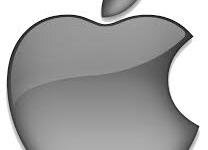- Deal could BT a one-stop shop for households seeking a landline, mobile contract, broadband internet and premium TV services
- At least half of the £12.5billion bid would be paid in cash, raising the prospect of price hikes
- EE formed in 2010, following a merger of French firm Orange and T-mobile
BT customers could face higher bills after the company bid £12.5billion for Britain’s biggest mobile phone firm, EE.
The deal could make BT a one-stop shop for households seeking a landline, mobile contract, broadband internet and premium TV services.
BT has recently undergone aggressive expansion, buying rights to Premier League football for its new sports channels. This has been funded in part by repeated, inflation-busting rises for existing customers – which began just weeks after the launch of BT Sport. This month saw standard line rental for Direct Debit customers rise by a further 6 per cent.
At least half of the £12.5billion bid would be paid in cash, raising the spectre of further price hikes.
Analyst Dan Ridsdale of Technology Media Telecoms said the deal would also ‘reduce churn – as it is much more complex to change service providers when a customer is using them for multiple services’.
BT had also been considering an attempt to buy back O2, which it owned under the brand Cellnet before it was spun off in 2002.
EE was formed in 2010, following a merger of French firm Orange and T-Mobile, which is part of the German company Deutsche Telekom. It has some 25million UK mobile phone accounts, and owns the country’s largest and best-developed high-speed 4G mobile data network.
However, it also has the worst customer satisfaction levels among mobile phone providers, according to regulator Ofcom’s latest figures; just 69 per cent approve of their service, compared with 78 per cent at O2.
Its prospective new owner, BT, won Money Mail readers’ Wooden Spoon Award this year for the worst customer service in Britain.
The firm, which has nearly 10million landline and broadband customers, admitted that it had struggled to deal with a flood of new accounts after the launch of BT Sport.

Yesterday a BT spokesman said: ‘The proposed acquisition would enable BT to accelerate its existing mobility strategy whereby customers will benefit from innovative, seamless services that combine the power of fibre broadband, Wi-Fi and 4G.’
BT plans to give Deutsche Telekom and Orange a mixture of cash and shares; the firms would respectively hold 12 per cent and 4 per cent stakes in BT.
However, analysts said regulators should block BT from taking such a dominant position over rivals such as Sky and Virgin.
Barry Collins of PC Pro said: ‘Even the notoriously spineless Ofcom must be concerned about one company having such influence over the entire telecoms market. BT simply cannot be allowed to dominate both fixed-line and mobile.’





